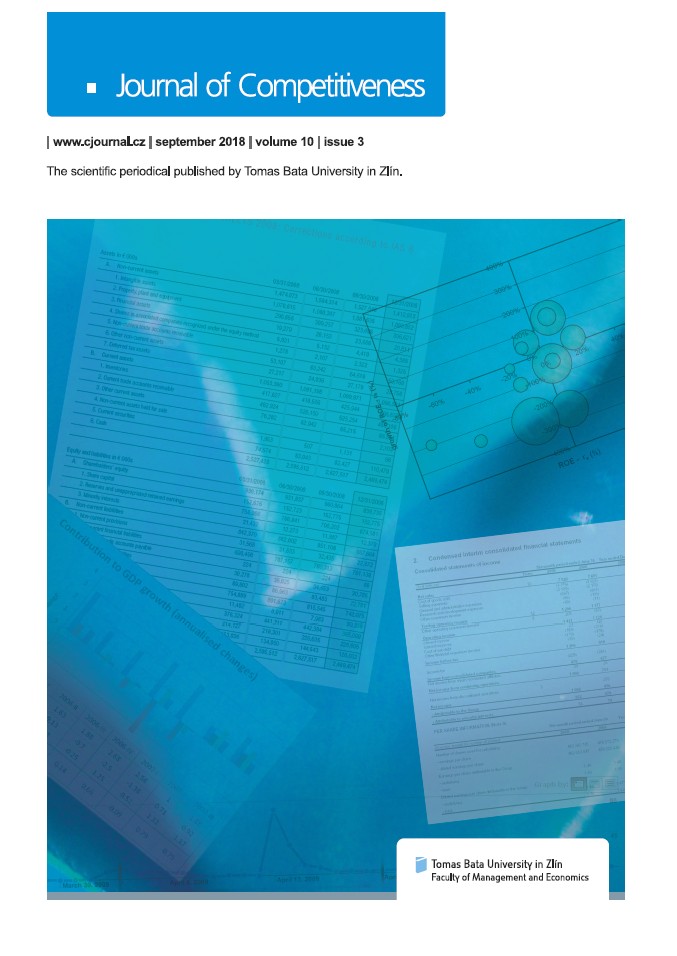外国直接投资对税收的影响:以欧盟为例
IF 4.4
1区 管理学
Q2 BUSINESS
引用次数: 10
摘要
外国直接投资(FDI)是通过技术转让、新的管理技能、对外贸易、企业生产力等促进国家竞争力和经济发展的一个极其重要的因素。本研究旨在分析FDI的意义及其对税收收入和竞争力的影响,并以欧盟经济为研究对象。本文利用1999 - 2019年欧盟国家的数据,对FDI与税收之间的关系进行了实证分析。这些数据摘自联合国贸易和发展会议(贸发会议)数据库和世界银行的世界发展指标数据库。为了实现本研究的目的,并确定外商直接投资对税收的影响,建立了一个计量经济模型。研究方法包括科学文献的系统分析和比较分析、面板数据分析和多元回归分析。回归分析采用最小二乘法,计量模型的估计值通过确定稳健异方差-一致标准误差来计算。研究结果表明,对外直接投资对税收总量具有显著的刺激作用。相反,流入的外国直接投资对税收有抑制作用。通过对欧盟成员国FDI对税收的滞后效应的分析,发现两年前对外直接投资的滞后效应在统计上是显著的。估计表明滞后效应是一种激励因素。FDI流入对税收收入的滞后效应在统计上不显著。本文章由计算机程序翻译,如有差异,请以英文原文为准。
Impact of Foreign Direct Investment on Tax Revenue: The Case of the European Union
Foreign direct investment (FDI) is an extremely important factor that promotes national competitiveness and economic development through technology transfer, new management skills, foreign trade, corporate productivity, etc. This study aims to analyze the significance of FDI and its impact on tax revenue and competitiveness, focusing on the European Union (EU) economy. An empirical analysis is conducted to determine the relationship between inward and outward FDI and tax revenue by employing data on EU countries between 1999 and 2019. The data were extracted from the United Nations Conference for Trade and Development (UNCTAD) database and the World Development Indicators database (WDI) of the World Bank. To fulfill the objective of this study and to determine the effect of FDI on tax revenue, an econometric model was developed. The research methods include systematic and comparative analysis of scientific literature, panel data analysis, and multiple regression analysis. The regression analysis was based on the least-squares method, and the estimates of the econometric models were calculated by identifying robust heteroscedasticity-consistent standard errors. The study results reveal that the outward FDI has a significant stimulating impact on total tax revenue. In contrast, inward FDI has a dampening effect on tax revenue. The analysis of the lagging effect of FDI on tax revenue in the EU member states revealed a statistically significant lagging impact of the outward FDI made two years before. The estimations indicate that the lagging effect is an incentive. No statistically significant lagging effect of the inward FDI flows on tax revenue was found.
求助全文
通过发布文献求助,成功后即可免费获取论文全文。
去求助
来源期刊

Journal of Competitiveness
Multiple-
CiteScore
11.30
自引率
2.70%
发文量
33
审稿时长
12 weeks
期刊介绍:
The Journal of Competitiveness, a scientific periodical published by the Faculty of Management and Economics of Tomas Bata University in Zlín in collaboration with publishing partners, presents the findings of basic and applied economic research conducted by both domestic and international scholars in the English language.
Focusing on economics, finance, and management, the Journal of Competitiveness is dedicated to publishing original scientific articles.
Published four times a year in both print and electronic formats, the journal follows a rigorous peer-review process with each contribution reviewed by two independent reviewers. Only scientific articles are considered for publication, while other types of papers such as informative articles, editorial materials, corrections, abstracts, or résumés are not included.
 求助内容:
求助内容: 应助结果提醒方式:
应助结果提醒方式:


